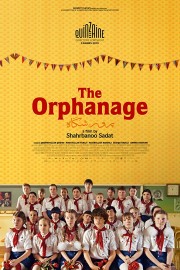The Orphanage
**Seen for the 2020 Atlanta Film Festival.
“The Orphanage” starts with Qodrat (Quodratollah Qadiri), in a movie theatre, watching a Bollywood film. He is enthralled by the images on the screen, and the joy of the musical number that begins after a wild action scene transports him as we are led into the opening credits. Throughout the film, Qodrat continues to have fantasies of Bollywood situations playing out in his hear; given his difficult life, it’s really all he has to hang on to.
Shahrbanoo Sadat’s film, adapted from the diary of writer Anwar Hashimi, has a very familiar shape when it comes to movies set in an orphanage, and about young men trying to sort out the type of person they are going to be. One of the things that makes this so interesting is the setting. Qodrat enters the orphanage after being caught scalping movie tickets in Kabul, Afghanistan. The catch about this time in the country’s history is that “The Orphanage” takes place as the Soviet Union has a foothold on Afghanistan, with their leader being sympathetic to Russia. By the end, that will change, and with it, Qodrat’s life, as he has a future ahead of him that will be alien to him as religious fundamentalists take over the country. That is for a different story, although his path might be laid out in the haunting final images.
I liked “The Orphanage” for the lead performance by Qadiri, the interesting time in history it shows in a country we don’t really get too many films of this kind from, and the infusion of Bollywood aesthetics in key moments of Qodrat’s story, which keeps the film from being a bit dull. Life in the orphanage is like a lot of coming-of-age stories of its kind, such as “The 400 Blows,” but seeing how the political happenings of the era make their way into the story, and especially how they almost seem to impact how Sadat views himself as an individual in a largely-Muslim world, make “The Orphanage” an engaging story to watch.










